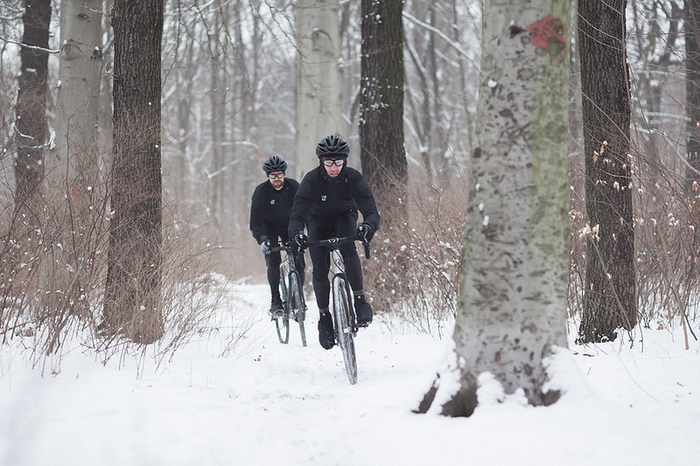Change is difficult, particularly when it includes mega-droughts, soaring summer temperatures, invasive species, and other items from the list of unpleasant results of climate change.
 Building resilience in outdoor recreation systems will take careful planning, according to new research. Winter-based recreation sites may need to expand operations to include shoulder- and summer-based activities in order to stay viable in a warming climate. Summer operations may need to adjust budgets and staffing for longer seasons and be better prepared for extreme temperatures. Image Credit: Stefan Haehnel.
Building resilience in outdoor recreation systems will take careful planning, according to new research. Winter-based recreation sites may need to expand operations to include shoulder- and summer-based activities in order to stay viable in a warming climate. Summer operations may need to adjust budgets and staffing for longer seasons and be better prepared for extreme temperatures. Image Credit: Stefan Haehnel.
Changing climate poses innumerable economic and social implications—but in the Western US where skiing, biking, hiking, hunting, and other forms of outdoor recreation are core to several people’s lives, and where local economies depend on income produced by such activities, the effects are already hard to ignore.
A new study from the Institute of Outdoor Recreation and Tourism specifies what, particularly, the changing climate will bring in for the future of outdoor recreation in the West.
The lesson at the heart of the review is that adaptation will be a crucial skill as the new climate provides unpredictable scenarios to local economies, individuals, land-management infrastructures, and long-term planners.
The review, reported in the Journal of Forestry, compiles the present study that explores the methods in which climate change varies the kinds and timing of outdoor recreation activities and the indirect impacts of these shifts on everything from bear populations to new issues with seasonal staffing.
Hot campsites, ski resorts with fluctuating snowpacks, rivers with low water levels, and forests crowned with a halo of wildfire smoke all impact several people who take part in the outdoor recreation and the quality of their experiences.
These influence how people move through the landscape, value the experience and spend their money, but the specifics are difficult to pinpoint. For example, if a campsite is too smokey, one group of recreationists might decide to drive additionally to reach an alternate site. One more might wait until the smoke clears, and another might prefer to give up a specific activity altogether and go home.
In the study, the scientists offer activity-specific adaptation plans that can be utilized to plan for these consequences (for example, increasing capacities of adjusting season lengths, current outdoor recreation settings, or enhancing communications to regulate visitors’ expectations).
Land managers can prepare for climate change by learning the best strategies for adaptation, as we currently understand them. Learning from past successes and failures when responding to things like extreme weather events can help managers better understand what’s going to best help them adapt to change — if and when it happens again.
Anna Miller, Study Lead Author, Utah State University
As per the study, building resilience in outdoor recreation systems will take cautious planning. For instance, developing collaborations and communication plans between agencies within a local region currently will enable managers to respond more efficiently as new situations arise. Also, managers need to cautiously consider how climate change adaptation strategies can enhance equitable access to recreation chances.
Winter-based recreation sites might need to extend operations to include shoulder- and summer-based activities to stay feasible in a warming climate. Summer operations might require adjusting budgets and staffing for longer seasons and is better prepared for very high temperatures. Wildlife and forest-product-gathering activities will have to build in flexibility and be ready for basic changes in the ecosystem as well.
We may not know precisely what’s in store for outdoor recreation managers in the next decades. but using our collective experience can help us learn how to adapt recreation planning for the most likely futures.
Anna Miller, Study Lead Author, Utah State University
Journal Reference:
Miller, A. B., et al. (2022) Climate Change and Recreation in the Western United States: Effects and Opportunities for Adaptation. Journal of Forestry. https://doi.org/10.1093/jofore/fvab072.